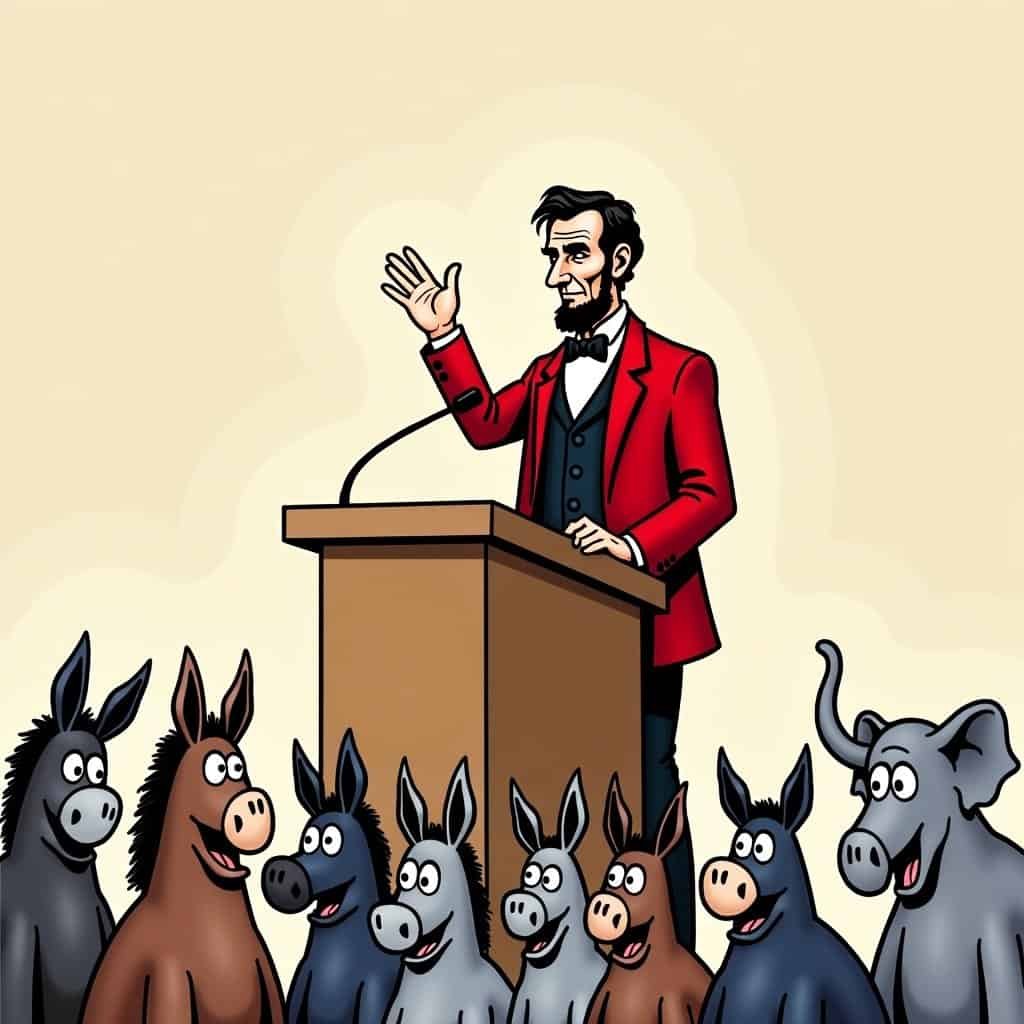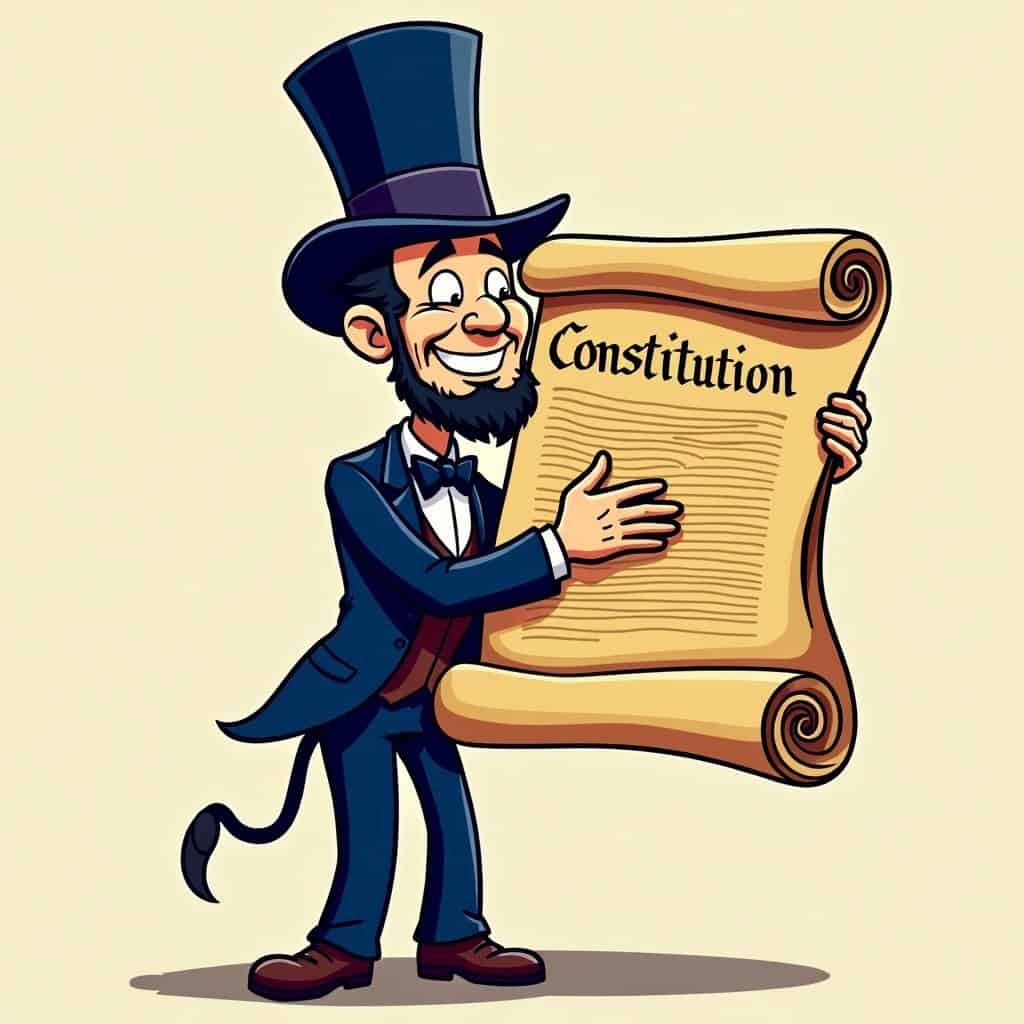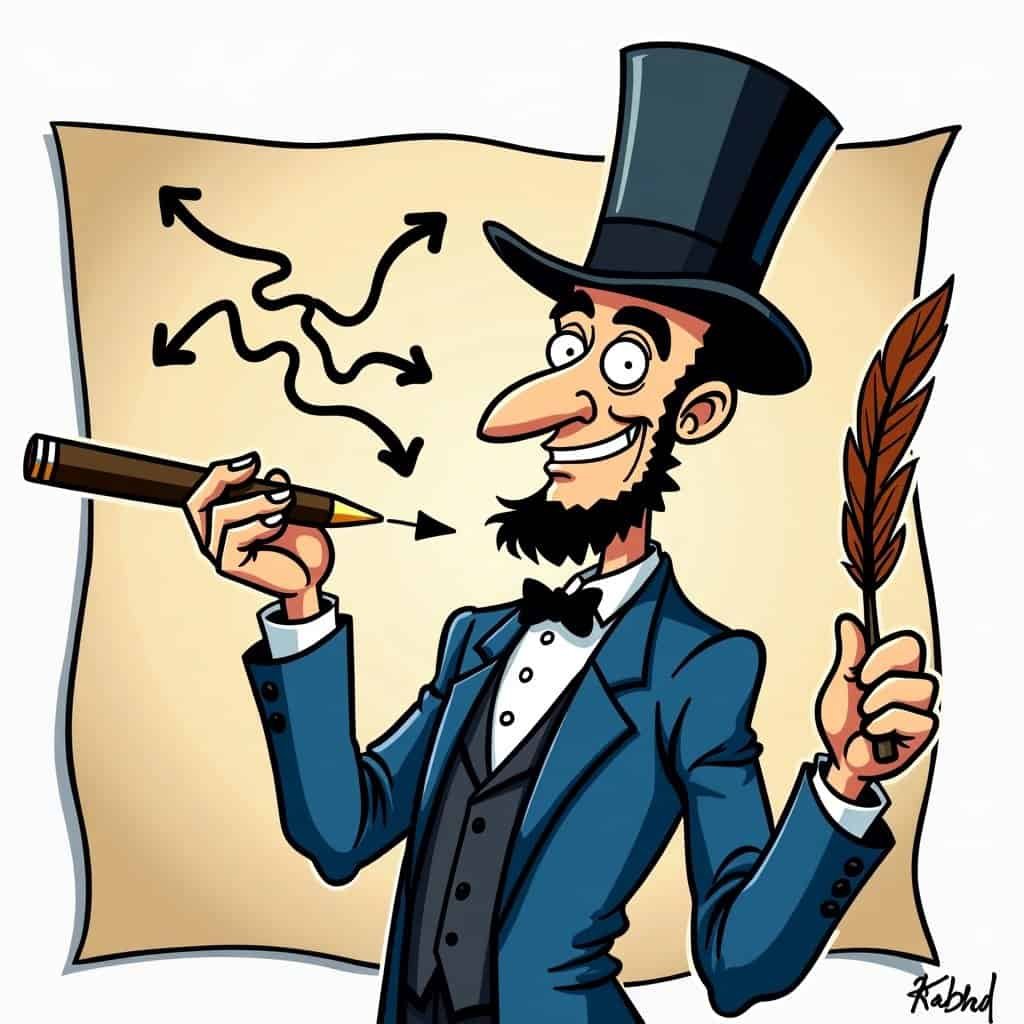Ah, Abraham Lincoln, the only president with a stovepipe hat whose legacy could fill as many volumes as his opponent’s tax returns. During his time, Lincoln faced the unique challenge of steering the country through wartime while upholding the rule of law.
Let’s be real for a moment. In the grand old history of our nation, Lincoln made some moves that might make modern-day constitutional purists raise an eyebrow or two—depending on which side of the political fence you’re sitting on. But let’s cut the stovepipe top some slack. After all, war isn’t exactly a walk in the park.
You didn’t see Lincoln throwing lavish parties in the East Room during the Civil War. Instead, he wielded the powers given by the Constitution, sometimes stretching them like a rubber band, to keep the Union intact. Picture Lincoln as a landlord dealing with feuding tenants in an apartment complex. Sometimes you’ve got to step in, fix the plumbing, and make sure no one’s hogging the Wi-Fi—all while following the age-old conservative wisdom: if it ain’t broke, don’t fix it, but don’t ignore the leaky roof either.
Lincoln and the Constitution: A Balancing Act
It’s amusing to imagine Honest Abe clutching his copy of the Constitution like a grocery list, grappling with a few instances of executive overreach! The rule of law wasn’t just a fancy idea to our 16th President; it was his North Star, ensuring Lady Liberty didn’t run off with Europe in the middle of the 19th century! Talk about a scandalous elopement!
Lincoln’s Approach to Rule of Law
- ✅ Preserved the Union
- ✅ Navigated wartime challenges
- ✅ Upheld constitutional principles
- ✅ Balanced executive power with legal constraints
On a more serious note, our conservative friends would likely tip their hats to Lincoln’s efforts to keep the country together, his steadfastness as he steered the ship of state through choppy waters. Lincoln bent but didn’t snap, much like the GOP’s approach to taxes—a little flexibility to boost the economy without emptying the pockets of hardworking Americans. You see, both Lincoln and conservatives get that the law, like a good old-fashioned stew, needs time, care, and the occasional tweak, but ultimately, it serves a purpose: protecting individual liberty and justice under the rule of law.
Lessons from Lincoln’s Presidency
Lincoln’s wartime leadership taught us Republicans a valuable lesson: the rule of law is the glue that holds everything together—from free markets to personal freedoms. Unlike the progressive view where the law seems to play favorites like a biased umpire, conservatives believe in slim government. A smaller government leaves more room for liberty, like a well-fitted hat—snug enough to stay put but loose enough to let your head breathe.
This tale of Lincoln isn’t just about one man or a time when America was split down the middle. It’s a nod to the staying power of conservative values that champion responsibility, limited government, and yes, sometimes a bit of legal creativity if it means keeping the American patchwork quilt intact. So, channeling Honest Abe as he might’ve said over his morning joe, “May the rule of law guide us like the North Star, always true, always steady.” Here’s to that!






